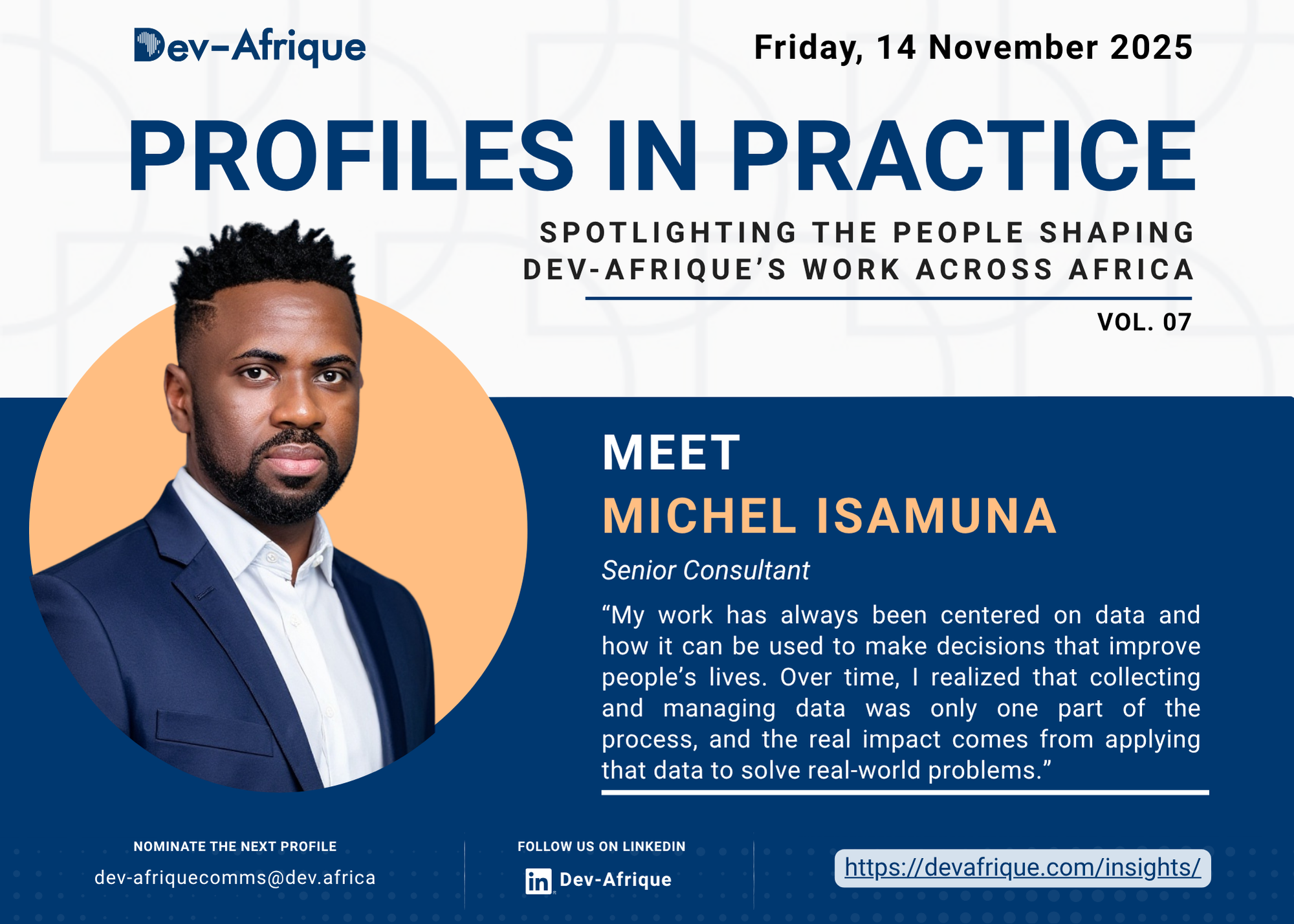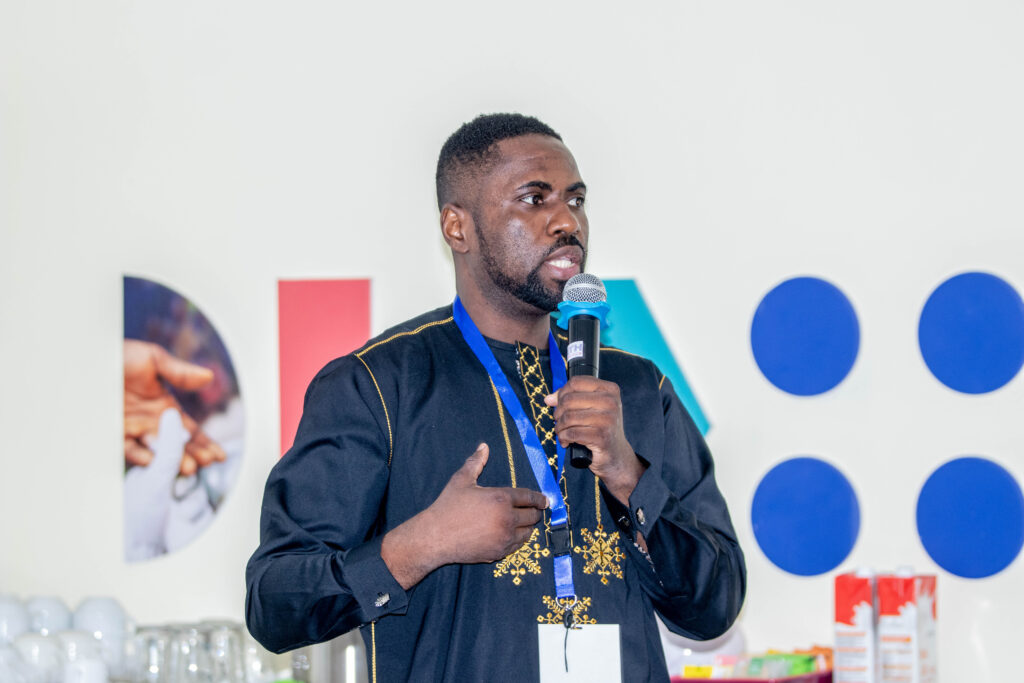Spotlighting the people shaping Dev-Afrique’s work across Africa

From Kinshasa to Micronesia and the Marshall Islands, Michel Isamuna’s career has spanned continents, crises, and causes, all driven by a single thread: using data to solve real problems. A Senior Consultant at Dev-Afrique, Michel brings over 13 years of experience in data and information management, having led major geospatial and development projects across Africa and beyond.
Since joining Dev-Afrique in 2020, Michel has played a pivotal role in driving the GRID3 Mapping for Health project in the Democratic Republic of Congo (DRC), strengthening vaccination effectiveness and health planning through data-driven strategies. His work has not only shaped policy-level coordination with the Ministry of Health but also influenced how geospatial data is used to improve national systems.
In this conversation, Michel reflects on his transition from the UN system to development advisory, the catalytic impact of localized expertise, and the values that make Dev-Afrique’s approach to development both unique and deeply personal.
Can you tell us a little about yourself — your background, your current role at Dev-Afrique, and how long you have been with the organization?
My name is Michel Isamuna, and I’m a Senior Consultant at Dev-Afrique. I hold a Master’s degree in Computer Science and Management, and I have more than 13 years of experience in data and information management, as well as project management.
Before joining Dev-Afrique, I worked with the United Nations in different countries including the DRC, Niger, Sudan, Haiti, Micronesia and the Marshall Islands. My focus in most of those roles was on developing data solutions and managing projects that improved the use of information for humanitarian and development programs.
I joined Dev-Afrique in 2020, right after COVID, as the National Coordinator for the GRID3 Mapping for Health project in the DRC. In that role, I led the mapping efforts for the project at the national level.
What first drew you to the world of development advisory?
My work has always been centered on data and how it can be used to make decisions that improve people’s lives. Over time, I realized that collecting and managing data was only one part of the process, and the real impact comes from applying that data to solve real-world problems.
Development advisory allows you to do that. It connects evidence to action and provides a space where data can directly influence strategy and outcomes. That is what attracted me to this line of work.
What led you to join Dev-Afrique, and how has your journey here shaped you personally and professionally?
I was drawn to Dev-Afrique because it offered a different kind of development experience — one that is agile, locally led, and rooted in evidence. After many years working in large institutions, I wanted to be part of an organization that could move quickly and respond directly to local contexts.
Since joining, I have grown both professionally and personally. The work here is fast-paced and diverse, and it requires you to think critically and adapt constantly. I have also learned the value of teamwork and collaboration. Every project is a collective effort, and that has strengthened my leadership and coordination skills.
Describe a specific project at Dev-Afrique you have contributed to that deeply impacted you.
The GRID3 Mapping for Health project in the DRC stands out the most. The goal was to use geospatial data to improve health outcomes, particularly for vaccination and planning activities.

As National Coordinator, I led the project team and coordinated closely with the Ministry of Health and other stakeholders. We worked to make sure that the data produced was owned and used by the government. Through this project, we supported better decision-making and improved the efficiency of health campaigns.
One key achievement was aligning all stakeholders, from ministries to partners, around one harmonized dataset. That might sound technical, but it was a big step forward because it allowed everyone to plan and act based on the same information.
What skills have you picked up or sharpened while working at Dev-Afrique?
I have developed stronger coordination and leadership skills, especially managing multiple partners with different expectations. I have also improved my technical expertise in integrating geospatial data into development systems.
Another important skill has been communication — learning how to explain complex technical ideas in a way that is clear to policymakers and decision-makers. That is something I use every day in this work.
Is there a “hidden” part of your role that people might not realize is crucial to DA’s success?
Yes. Many people see the technical or coordination side, but there is also a lot of behind-the-scenes work that goes into making partnerships and collaboration function smoothly.
Maintaining good relationships with stakeholders, ensuring alignment across teams, and helping partners see the value of data are all essential to our success, even if they are not always visible.
In your experience, what distinguishes Dev-Afrique’s approach to development advisory and consulting in Africa?
Dev-Afrique’s approach is different because it is led by Africans who understand the local realities. The solutions we develop are grounded in context, not imported models. That makes a huge difference in terms of ownership and sustainability.
We also focus on systems thinking, looking at how each project fits into a larger ecosystem. That perspective aligns closely with my own values: impact, sustainability, and collaboration.
How would you describe the team spirit at Dev-Afrique in one word, and why?
Collaborative. Everyone brings something unique to the table, and we learn from each other constantly. The environment encourages teamwork, and that is what allows us to achieve results.
What is something your teammates might be surprised to learn about you?
I’m an avid runner and passionate home cook. On weekends, you’ll likely find me training for a half-marathon or experimenting with a new cuisine rather than relaxing on the couch. I’m also a big bibliophile, and my ideal evening involves getting lost in a great book, often switching between self-development and psychological thought. Also, I can speak six languages fluently.
Reflecting personally, can you share a moment or interaction during your time at Dev-Afrique that reaffirmed your passion for this work?
There have been many, but I would say seeing the government and partners actively use the tools we developed has been very meaningful. It is one thing to produce data, but seeing it applied to improve planning and decision-making shows that the work truly matters.
How has working at Dev-Afrique influenced your growth or changed your perspective on Africa’s development challenges and opportunities?
Working at Dev-Afrique has made me more optimistic. Africa has the talent, creativity, and technical capacity to solve its own challenges. What we need is the right structure and collaboration, and that is exactly what Dev-Afrique promotes.
If you had to summarize why you are “DA Proud” in one sentence, what would you say?
I’m proud to be part of a team that is not only delivering solutions but also changing how development is done — driven by data, grounded in Africa, and focused on real impact.

